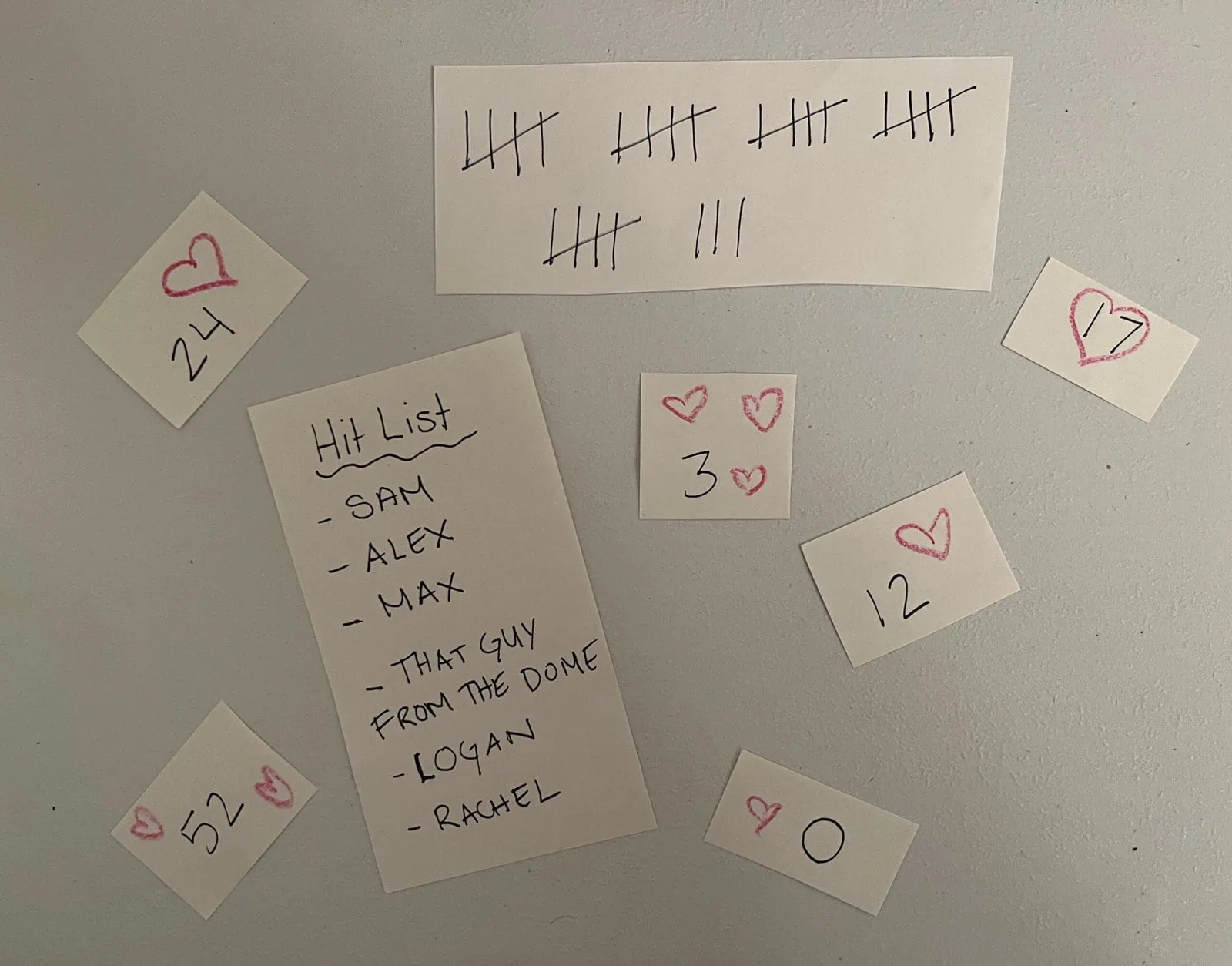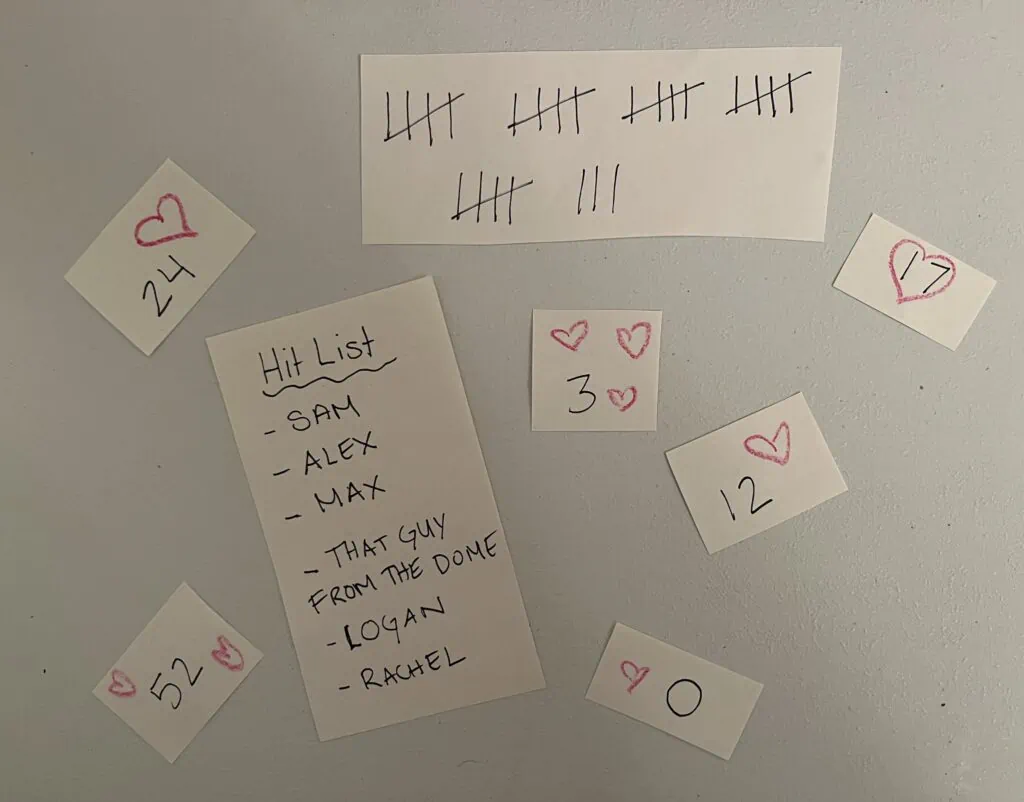Everyone with TikTok knows about body counts — the number of individuals that you’ve had sex with. For a lot of us, this exact number is available in our brains at all times.
Body counts are paired with another recent phenomenon: body lists, also called kill lists or hit lists. Again, pretty simple concept: a list of names of each sexual partner you’ve had. I find the existence of these lists fascinating for many reasons. The first is I don’t understand their purpose.
There are two ideas I came up with for why someone would keep a body list. One, remembering and two, bragging. Neither of these makes sense to me.
Put it on the list
By remembering, I mean body lists functioning to track sexual encounters you would otherwise forget.
Second-year Dalhousie University student Sary Zawaideh recently made a list.
“It was because one of my friends brought up a recent hookup [of mine] and I had zero recollection of it. So I decided to make a list so I could remember everyone,” said Zawaideh.
Second-year Dal student, Hannah Sabean, also cited memory as the reason for body lists.
“Sex is a very close interaction. You’re seeing each other naked. So, if you don’t remember those people, it makes you seem like a really horrible person,” said Sabean.
This seems logical, on the first brush. However, there’s sort of a weird contradiction in this process.
Sex is so important that forgetting a sexual act makes many feel like horrible people. And the only way to honour this is by jotting it down on your notes app? This seems like a lazy way to commemorate something if it’s that important.
Maybe it’s totally fine to document sexual history in these lists, but doesn’t that indicate that sex is unimportant? If sex is important enough to value and remember it, why keep the list at all? This brings me to my second idea for body list existence: bragging.
Another notch on the bedpost
Second-year Dal student Ella Stratton describes playing a body list game with her friends.
“I had a list because, as horrible as it is, I had a point system. A kiss was worth two points and a hookup was five points. And after that I was like, ‘This is really not a great thing to do,’” said Stratton. Sabean recalls playing a similar point-based game with her friends.
Some lists function this way, as competitive games where the winner has the most sexual partners.
But trying to win a game by showing you can have the most sex? That’s bragging.
Having sex with lots of partners to boost your count because the ability to hook up with lots of people is part of your identity? That’s bragging.
Any time you measure the large amount of sex you have with someone else, it’s bragging.
If this is the case, the lists function as documentation. As proof, to show others.
So, which is it, remembering or bragging? I don’t think there’s an either-or answer.
Body lists are subjective
Body lists are everything all at once. They’re a testament to the intimacy of sex and a complete negation of it. They’re personal artifacts for just you and made for the purpose of eventually being shared. They’re used to judge and rate other people, and the world uses the list to judge and rate you.
No one I interviewed had an issue with the thought of being on someone else’s body count, but everyone had something to say about potential partners having high body counts.
Second-year Dal student Mason Robert said a high body count may make him feel less special.
“Have you been this close with like 30 other guys? Am I not really that different from them? Am I just going to be another number?” said Robert.
Second-year student Brooklyn McCue thinks it’s important to swap these numbers, even if they’re high.
“If you’re sleeping with someone and it’s genuine, you kind of want to know: have you fucked 57 people?” said McCue.
Sabean pushed back on this point.
“It’s a social construct,” she said. “People’s worth [as sexual partners], I guess, goes down the more people they’ve had sex with, but that has nothing to do with your worth as a human being.”
What does it mean when people have sex with a lot of people? Why do we enjoy the freedom of doing this ourselves but are viscerally uncomfortable when others do? And how do we solve this problem?
This is ultimately the question of sex right now, and the larger question behind body counts.



Recent Comments